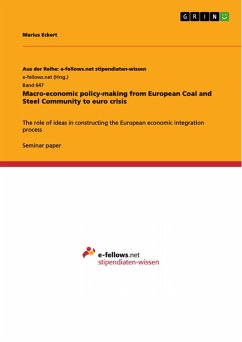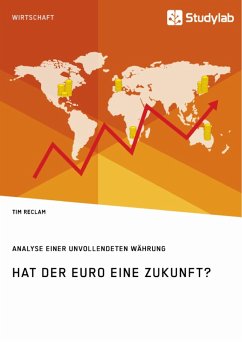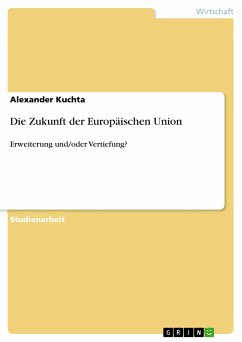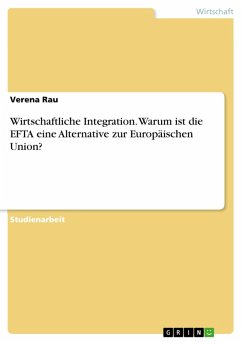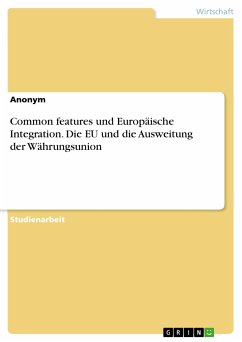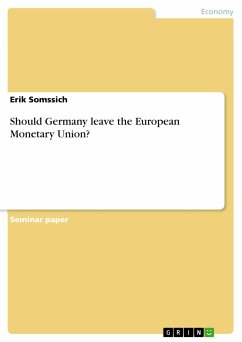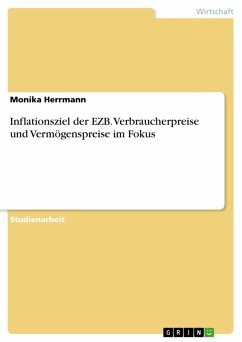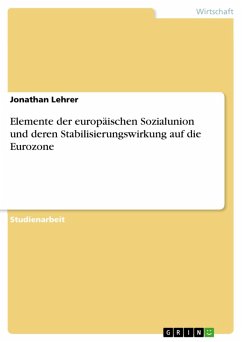Seminar paper from the year 2013 in the subject Economics - Macro-economics, general, grade: A, Tallinn University (Institute for Political Science and Governance), course: Construction of Europe, language: English, abstract: Economic integration is widely considered to be the driving force of the European project and is by today much further developed than the political integration of the EU member states. Starting with the European Coal and Steel Community (ECSC) economic integration developed by deepening and widening its scope; including up to date 27 member states which share a common internal market, among them 17 nations which also share the euro as a common currency. This so-called euro zone entered a phase of crisis from 2010 onwards and the joint policy response was a "muddling-through tactic" comprising of step-by-step financial assistance and cautious further economic integration. This paper is situated in the outlined context and is concerned with the interaction of ideas and the economic integration process up to today's euro crisis management. Thus the analysis will set out to answer a two-fold research question: "To what extent did ideas construct the European Economic and Monetary Union (EMU) and how does this determine the current crisis policy patterns?" The theoretical framework is based on the theory of the ideational life-cycle which aims at explaining the role and transformative power of ideas among macro-economic policy elites in constructing social realities. It seems promising because European integration has been an elite-led project and policy implementation was merely top-down, especially in the field of economic integration. The paper subsequently reconstructs and analyzes the changing nature of ideas in determining national and European level economic thinking from the ECSC to the revised Stability and Growth Pact within the EMU. Building on these insights the patterns of current policies dealing with the euro crisis are examined. The paper argues that the German ordo-liberal economic understanding has been implemented also on the European level during the 1970s/80s period of economic downturn and uncertainty within the political elite. It then became firmly institutionalized with a more monetarist stance and continues to influence the policy decisions of today's European elite. This explains the fixation on 'sound' money and finances as expressed in the crisis therapies that can currently been witnessed in Europe. Emphasizing this theoretical perspective helps to uncover path-dependencies which will determine future policies and the scope for changes.
Dieser Download kann aus rechtlichen Gründen nur mit Rechnungsadresse in A, B, BG, CY, CZ, D, DK, EW, E, FIN, F, GR, HR, H, IRL, I, LT, L, LR, M, NL, PL, P, R, S, SLO, SK ausgeliefert werden.

